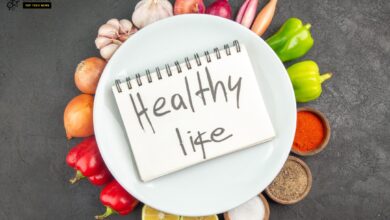Tips for Reducing the Risk of Kidney Stones

Kidney stones are typically small deposits of minerals and salts that develop in the kidneys, can be very painful, and in some cases may result in complications. Dehydration, bad dietary habits or genetic history commonly lead to them as a common issue people often face all around the world.
Stay Hydrated
Staying hydrated is one of the easiest and most effective ways to keep from getting kidney stones. Substances that can cause formation of stones like calcium, oxalate and uric acid, are diluted in water. Drinking 2-3 litres of water a day is a rough goal to try and hit, although this will vary depending on your activity level and climate.
The idea here is that having your water bottle around you always, setting reminders on your phone, or being creative and adding lemon or cucumber slices to your water can help you make hydration a habit. Of course, lemon water is very good, as it contains citrate, a compound that will help prevent the stone formation.
Adopt a Kidney-Friendly Diet
Eating has a fairly big impact on preventing kidney stones. Certain dietary adjustments can minimize risk:
- Limit Oxalate-Rich Foods: Spinach, rhubarb, and beets contain a compound called oxalate. Where calcium binds with calcium in the urine, this can form crystals that can lead to kidney stones. Rather than eliminating these foods, eat them with calcium rich foods. For example, having spinach with yogurt will decrease the amount of oxalate absorption.
- Moderate Sodium Intake: Having high sodium levels can raise calcium in the urine further increasing the risk of stones. You should try to reduce your sodium intake to less than 2,300 mg daily. Processed foods, canned items and salty snacks are often loaded with sodium so avoid these.
- Balance Calcium Consumption: While you need calcium for a healthy skeleton, too much calcium supplement can contribute to kidney stones. Instead, you’ll want to get calcium from natural sources such as dairy products, fortified cereals, and leafy greens.
Cut Down the Intake of Sugary And Processed Foods
Refined sugars and processed foods are not healthy for overall health and can also increase the likelihood of getting kidney stones. Drinking sugary beverages, such as sodas and energy drinks, can cause the levels of oxalate in urine to rise. To avoid this, consider consulting a nephrologist in Islamabad for personalized advice. Additionally, replace sugary drinks with healthier alternatives like herbal teas, coconut water, or plain water. Reducing your intake of processed snacks and desserts will also help maintain healthy kidney function.
Avoid Excess Animal Protein
High amounts of uric acid in the blood can be caused by an animal based diet high in red meat, poultry, and seafood, which in turn forms the uric acid stones. Also, excessive protein can lower the amount of citrate present in your urine, which prevents stone formation. Lean proteins include fish or plant based foods like beans, lentils, and tofu.
Maintain a Healthy Weight
Kidney stones are a known risk factor for obesity. It changes the acid base balance in your urine and gives it a setting for stone formation. You can manage your weight greatly with a healthy diet and regular exercise and these can significantly reduce your risk. Eat whole, unprocessed foods, don’t go on crash diets, these promote rapid weight loss and can cause stress to your kidneys.
Stay Active
It’s not just good for your heart and muscles but physical activity also helps your kidneys. Exercise improves circulation and is important for maintaining a healthy weight as well as a healthy internal environment for all the organs of the body. Walk, swim, or cycle for at least 30 minutes a day for five days per week. If you just can’t do more, consistency is key: even light activities like gardening or yoga are helpful.
Monitor your Vitamin and Mineral Intake
Although vitamins and minerals are necessary for good health, in the case of kidney stones it can all go wrong by taking too much. For example, over intake of vitamin C can cause oxalate levels to rise in urine, over intake of vitamin D can cause calcium levels to rise. This means consuming these nutrients as recommended by dietary allowances and avoiding supplements. Also, potassium and magnesium are important in the health of the kidneys so you want to include foods like bananas, avocados, nuts, etc.
Regular Check Ups
With a family history of kidney stones or if you have had any before, you will need regular medical check-ups. A nephrologist in Karachi can perform urine and blood tests to identify risk factors, such as high calcium or uric acid levels. Early detection enables doctors to tailor advice and interventions to prevent recurrence.
Conclusion
To prevent kidney stones, you also have to be active in hydration, diet, and lifestyle. You can reduce your risk by drinking lots of water, maintaining a healthy diet, weight, and staying active. Your kidney health can improve over time with small, consistent changes. Of course, if you’re worried about your risk, it’s smart to talk to a healthcare professional to get their guidance. Likewise, getting the right support makes a difference in many areas—whether it’s health or academics, where ghostwriter facharbeit can be a helpful resource.
Also Read: How Do Heavy Metals Enter Your Baby’s Food?



